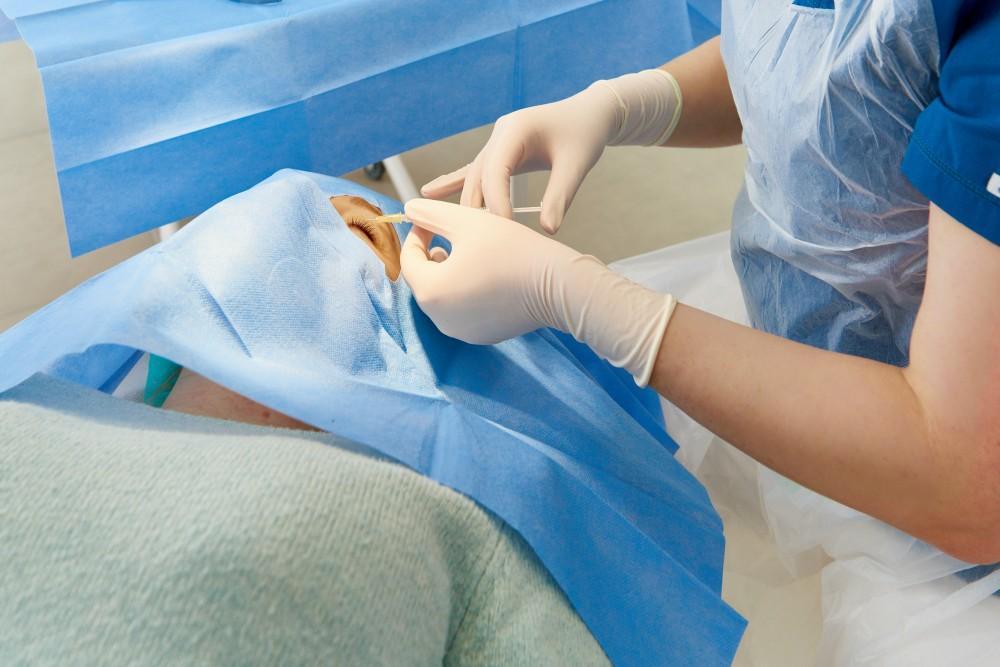
What You Can Do to Help Prevent Age-Related Macular Degeneration

September is Healthy Aging Month, and our team of eye care experts at Retina Specialists is happy to promote it. To that end, we’ve put together some practical steps you can take to help keep your eyes healthy and your vision intact.
Age-related macular degeneration (AMD) is a progressive condition that affects about 10 million people in the United States. It’s also the most common reason for vision loss after age 65.
The macula is very near the centermost portion of your retina and is responsible for clear central vision of objects right in front of you. Changes associated with AMD range from subtle, foggy areas at the center of your visual field to no central vision at all. As it advances, AMD can make it impossible to read, drive, work on a computer, watch television, cook, or perform other daily routines that require central sight.
The good news? Physicians like our highly qualified providers at Retina Specialists understand AMD better now than ever before due to advances in medical technology and knowledge. There are practical and relatively simple steps you can take to help prevent AMD from stealing your vision.
Get a comprehensive eye exam
Even when you don’t notice problems with your vision, you may be developing conditions like macular degeneration. And as is the case with most medical issues, early diagnosis offers the best treatment outcomes.
Because AMD generally begins in a person’s mid- to late 40s or early 50s, you should have a baseline eye exam by age 40 and then every two to four years after that. If you have increased risk factors, such as a strong family history of AMD or a personal history of poorly controlled diabetes or hypertension, you may require more frequent or earlier exams as directed by your Retina Specialists doctor.
A complete eye exam includes careful examination of your retina and the health of your macula. For this portion of the exam, we use drops to dilate your pupils and provide a clearer look at the macula and other structures located at the back of your eye. It’s a painless exam, but you may be extra sensitive to bright light, especially sunlight, for several hours.
You are what you eat
For decades physicians have advised their patients to eat a nutritionally sound diet to help keep weight down and avoid medical conditions such as diabetes and heart disease. The same principles apply to your eye health and may have a significant impact on decreasing your risks of developing conditions such as AMD.
Research continues to show that the nutrients found in a diet that’s low in saturated fats and includes green leafy vegetables such as kale and spinach, yellow and orange fruit, fish, and whole grains are vital to eye health.
We may prescribe specialized vitamins to help fight progression of the disease if you’ve been diagnosed with AMD. Otherwise, we recommend you choose food rather than supplements to maintain your eye health.
Implement a healthy lifestyle
Along with getting the right nutrition, habits that can help protect your overall health and prevent damage to the structures in your eyes, such as the tiny blood vessels that nourish the retina and macula, include:
- Quitting or never starting smoking
- Maintaining good control of conditions such as diabetes, hypertension (elevated blood pressure), and heart disease through proper diet and medications
- Exercising regularly
Our experts at Retina Specialists, with convenient locations in Dallas, DeSoto, Plano, Mesquite, and Waxahachie, Texas, are happy to partner with you in maintaining your overall eye health and protecting your vision against age-related conditions such as macular degeneration. Schedule your eye exam today.
You Might Also Enjoy...


How Aging Impacts Retinal Health

Vitrectomy: The Outpatient Surgery That Can Save Your Vision

When to Seek Treatment for Eye Trauma

What Happens During a Diabetic Eye Exam?


